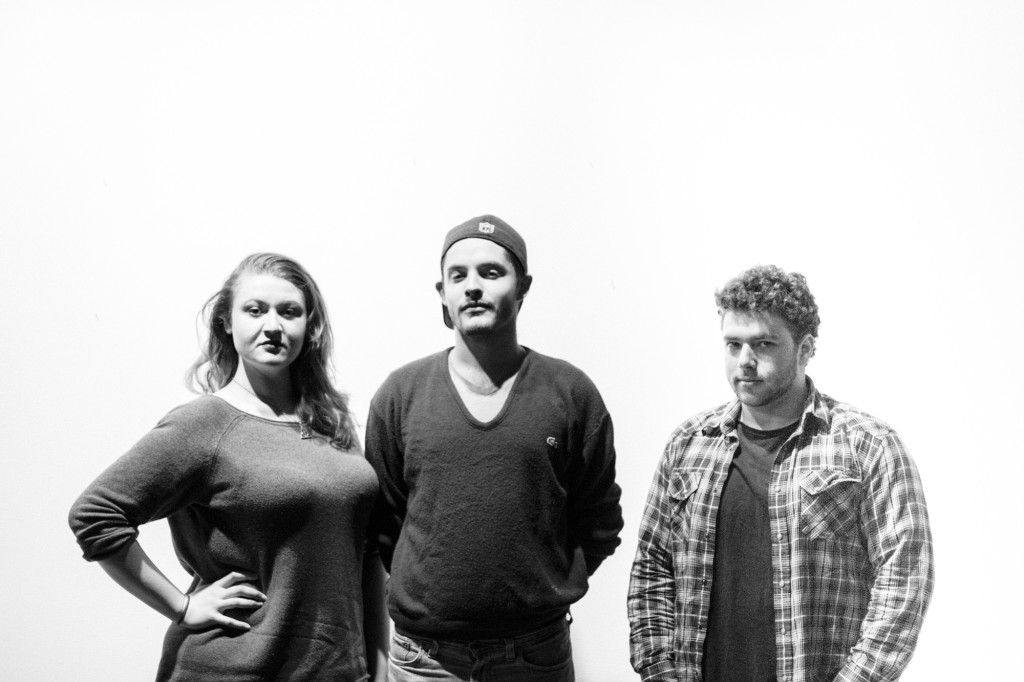Inspiration. An idea. Passion. The drive to put it down on paper. Frustration, revision and more frustration. Then, all of a sudden, that original idea has morphed into something likeable, something good, something completely off from the beginning. Sound familiar? It should to anyone that has taken on the process of writing.
Three student-directed one act plays, opening tomorrow at the Lee Center, will capture this process through their own lens. Directed by seniors Michael Notestine, Kylie Spillman and Matt Weingarten, the one acts are based on selections from “365 Plays/365 Days” by playwright Suzan-Lori Parks.
In late 2002, Parks got the idea and proceeded to take on the challenge of writing one play every day for an entire year. She called the process “a meditation on play writing and a way to honor it” in a 2006 interview with NPR. The challenge was to completely devote herself to the creative process, which the students are now in turn mirroring with their own work.
The plays are largely based on Parks’ day-to-day experiences and how they affect her writing. The U.S. invasion of Iraq dominated the news during the time she was writing, so many of the plays involve themes of war—like soldiers coming home and how the war affected their family lives.
The student directors each selected around five plays from the book and combined them into a narrative that represents the writing process, as their plays are meant to be performed in succession.
“What we’ve done is taken these plots and strung them together to create a greater narrative that reaches beyond plot,” said Notestine. “We’ve created this story of a writer working on drafts from beginning to end throughout the evening.”
The focus is as much the writing itself as the writing’s content. Whether its art, writing, math algorithms or lab work, all students take on their own voyages of creating. Tackling an equation or writing a short story are completely different experiences, but the mathematician and the writer still devote themselves entirely to their work and they both suffer setbacks. In writing this article, I go through a similar process unique to myself—it’s unavoidable and ever-present.
“We watch her write, consider, then discard version after version of mini-plotlines as she goes through personal hurdles that we as an audience can all relate to,” Notestine said.
The directors had to figure out how to bring to life their own vision of Parks’ “365 Days/365 Plays” while still maintaining the integrity of the original work—a process which in itself mimics the challenges Parks had while writing a play day after day.
“I got to create so much in terms of the work because I had to connect it all,” said Weingarten, whose play focuses on the end of the writing process as the writer nears her goal of a final piece. “Working with sound, lights and the actors in order to make a through line, it’s like a puzzle. Figuring out where the pieces go is what’s fun, but also the most challenging and stressful.”
Often when we begin a journey, literal or not, our focus is the destination as opposed to the various paths we take along the way. Sometimes it takes regular and daily practice, even if it feels like nothing was accomplished.
“Our production focus on that element of the work, creating an evening that highlights process,” Notestine said.
To make it all happen, each director was allotted five actors. They all played different roles within the miniature plot-lines that line up to create each one act.
“I think there is a lot of flux for the actors where they have a lot of say in how their arcs shape out, even more so in this case because we’re creating so much stuff and putting it together,” Weingarten said. “A lot of actors have to play five different roles, so it’s about transforming their body to play each of these characters.”
The production, as a process, is a theme in itself.
After seeing Spillman and Weingarten’s work first hand, I’ll guarantee these one acts will be well worth your time—especially if you’ve ever been exhausted by the work you love.
Performances will take place at the Lee Center for the Arts Feb. 18-21 and 25-28 at 7:30 p.m. and Feb. 22 and March 1 at 2 p.m. Tickets are $6 for students, $8 for faculty and staff and $10 for the general public.









